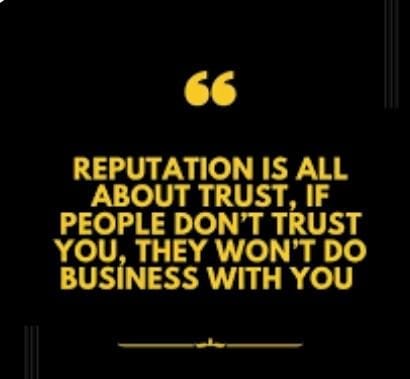16th April 2025
Your reputation isn’t just what people say about you—it’s the position from which you make every move.
While most people understand that reputation matters, few recognize how it functions as a strategic asset that either unlocks opportunities or leaves you perpetually trapped.
The mechanics of this process mirror an unlikely source of wisdom: the game of billiards.
A master billiards player approaches the table with dual vision.
While amateurs focus solely on pocketing the immediate shot, professionals focus on how the current shot positions them for the next one.
This deceptively simple insight—that present moves determine future options—perfectly captures how reputations function in our interconnected world.
Amateurs celebrate the flashy, difficult shot without noticing or caring that they’ve left the cue ball trapped – making the next shot impossible.
On the other hand, the professional might pass on an impressive shot entirely if it creates poor positioning, preferring the modest play that sets up a sequence of future successes.
This dynamic perfectly captures the “reputational cue ball concept.”
People who think about positioning for the next shot gain an unfair advantage. They see how today’s choices directly shape tomorrow’s opportunities.
When someone cuts corners to close a deal or throws colleagues under the bus for quick advancement, they might pocket a ball—but their reputational cue ball ends up snookered behind a wall of distrust, with no clear shot at what comes next.
What follows is a fascinating compounding effect that transforms the game.
Watch a top player during a successful run—each carefully positioned shot creates progressively better angles, until clearing the table becomes almost inevitable.
Your reputation builds momentum in exactly the same way.
Every promise kept, difficult truth spoken, or principle maintained under pressure, the ethical choice taken, places your reputational cue ball in increasingly advantageous positions.
Small acts of integrity compound into something powerful: a network of opportunities that appear precisely because you’ve demonstrated trustworthiness when it mattered.
But the downward trajectory is just as dramatic.
Poor positioning cascades rapidly in billiards—one bad leave creates a nearly impossible next shot.
With reputation, the math works exactly the same way: rebuilding after significant breaches isn’t merely difficult; some positions simply cannot be recovered.
This explains why seemingly “minor” ethical compromises often initiate downward spirals that devastate careers and relationships.
The mathematics of trust works multiplicatively, not additively—a single zero in the equation nullifies everything else.
The parallel extends further. A billiards champion doesn’t play with technique on some shots while carelessly hitting others—they maintain a consistent approach throughout the game.
Your reputation demands this same unified approach across all areas of life.
When people discover you operate with different ethical standards in different contexts, the inconsistency undermines everything you’ve built.
The public figure who champions integrity while privately exploiting others,
the business leader who demands loyalty but offers none—these contradictions eventually become visible, collapsing the entire enterprise.
What makes this concept particularly powerful is how visible your positioning is to everyone around you.
People notice whether you follow through on commitments, how you speak about others when they’re not present, and whether your actions align with your stated values.
Operating with integrity isn’t just morally right; it’s strategically brilliant.
Charlie Munger once said, “You can make a lot more money with good ethics, but it takes a while to play out.”
Individuals with well-positioned reputational cue balls, magnetically attract opportunity. They navigate professional and social landscapes with remarkable ease, not because of superior talent, but because their past ethical choices have positioned them where valuable opportunities naturally present themselves.
Those with great reputations operate with velocity—doors open, introductions happen effortlessly, and the benefit of the doubt is freely given.
Meanwhile, those with compromised reputations find themselves perpetually playing on the highest difficulty setting. They exhaust their energy & creativity on damage control, rebuilding burned bridges & constantly searching for new people to deceive since previous relationships have soured.
The reputational cue ball concept reveals the ultimate truth: integrity isn’t just right—it’s the strategic advantage that determines which game you get to play.
Don’t play for the short term, Let your reputation build trust and open doors for you and stay blessed forever.

